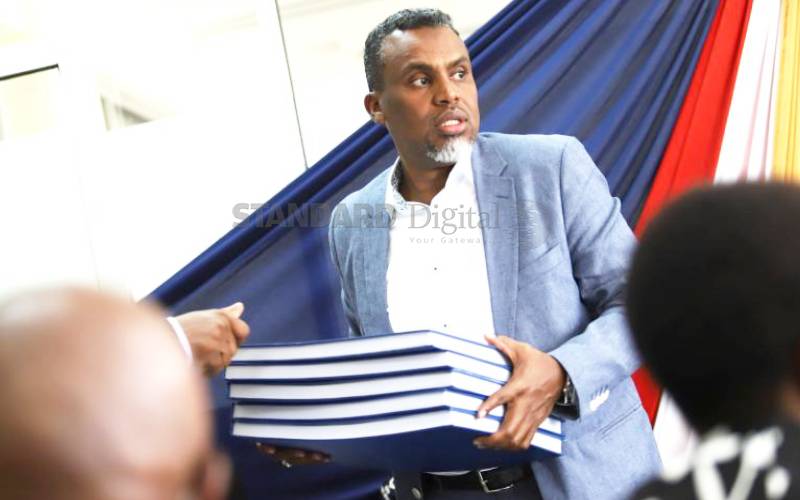×
The Standard e-Paper
Fearless, Trusted News

Director of Public Prosecution Noordin Hajji carries court registers during the opening of the Regional Office in Kisumu on October 22, 2019. He cautioned MPs from passing the bill on spying. [Denish Ochieng/ Standard]
The Director of Public Prosecutions Noordin Haji has cautioned MPs against passing a law prohibiting State agencies from spying on citizens.